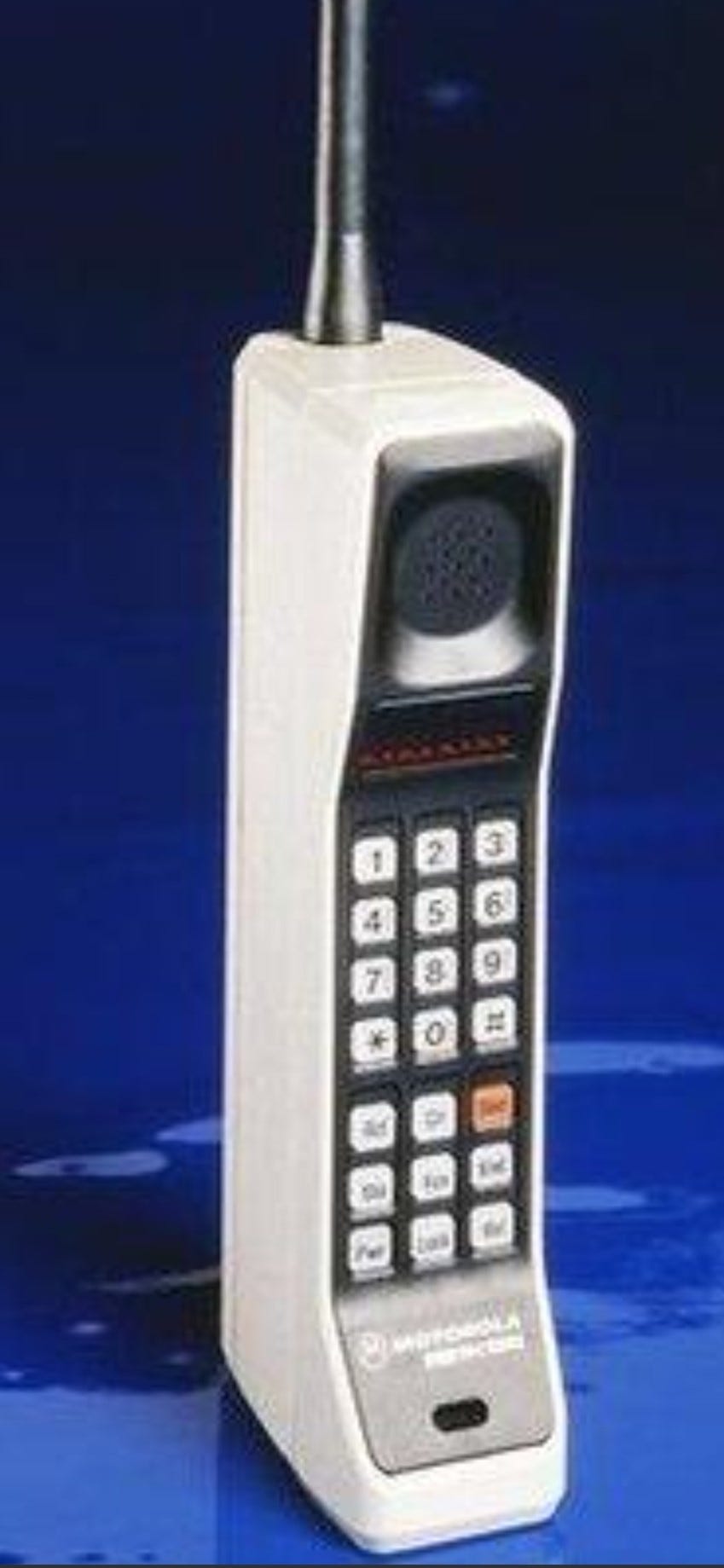Quick find a phone box, I’ve Got a story!
As the mobile phone celebrates its fiftieth anniversary, Paul looks back at what life was like working as a tv news reporter before the mobile changed the world forever.
My introduction to the world of regional television was strange, to say the least. On arriving at the television studio, I asked for the head of news, who had invited me to be interviewed. “Not here,” said a member of the newsroom. “It’s after eleven so you will probably find him at the pub.”
One hour later I was standing at the bar of a local hostelry where the head of news was ensconced, quietly sipping a beer. Laid back and very approachable, he had also forgotten I was coming. I must have done something right, however, because barely five minutes later, with hardly a question, I found myself appointed to my dream job as a television news reporter/presenter.
In the beginning, I believed that I would be rushing around the region, unearthing stories, and dashing back breathlessly to the studio to bring them to the screen. Nothing could have been further from the truth. Life then was far more sedate.
For a start, I had a crew to think of. The television unions insisted that all news reports, however short, required a cameraman, sound recordist, and electrician. Then the company had an open account with many hotels in the area for this group to refresh themselves while “on the road.”
So, in between morning coffee and bacon rolls (the favoured crew break food) there would be an interlude when I could film a story before the crew chief (cameraman) would insist on adjourning to a nearby hotel for a three-course lunch! Two stories a day were the “norm,” one in the morning and again one in the afternoon. That was for a feature day if you were on a news story then the reporters’ problems really began.
The first problem was that the item would be on film. This would take a minimum of an hour to process back at base and the region was so big you could take two hours to reach the story. The upshot was, you couldn’t film for very long. All this paled into insignificance, however, when compared to the communications.
From the minute you left base you were on your own. No mobile phone with constant communication. I knew every phone box in the region. Yes, now long gone, the traditional British red phone box was my lifeline. On a fast-moving news story, I would travel for half an hour then find a phone box and call in for an update. Oh and of course no reporter travelled without loose change to make the call. Equally important was knowing where the nearest box was when attending a news conference. A quick call to file the first report, then a car dash to base, hand the film to the processor, and wait nervously for it to be delivered, (still damp) ready to cut with a pair of scissors. Things were however changing!
The invention of the mobile phone was among the first technological change, which together with videotape was to herald a new dawn. Well, sort of. Because, the first mobile phone came in a suitcase, was impractical and totally out of our price range. So, we had to wait until the mid-eighties for the first usable model.
Until then we had pagers. These small devices clipped to your belt and vibrated when you had a message. They were limited to a few characters so the most you would find out would be a cryptic “call in” or worse still “job cancelled, call in.”
Then one day it arrived, my very own mobile phone. With great reverence I screwed in the “rubber duck” (as the whip antenna was called) only to find out it would take 10 hours to charge before I could use it, for a maximum of thirty minutes. Then, who to call? For though we were at the cutting edge of technology there were very few masts in the region and almost no signal! Finding someone to call was an art form!
I did not care. I had a phone. It weighed nearly 800 grams, took hours to charge and I could contact almost no one in the beginning. That did not stop me and other TV reporters from keeping it in the inside pocket of our suits. This created a huge bulge that pulled the inside pocket of my jacket down to a ridiculous level (it was a mobile wasn’t it?). Not only that but the ariel often got stuck in the lining and a fierce struggle took place to extricate from the pocket.
It was, in the beginning, a bit of a status symbol. A story was told at this time about a very senior television executive who was furious when he found out his deputy had a new mobile phone, and he did not. The executive immediately ordered a better mobile phone and duly called from his limousine, his deputy, who was travelling in his company limousine. The deputy’s assistant answered and the executive asked to be put through to his deputy. The assistant calmly informed him this wasn’t possible………….as his deputy was on his other phone!


